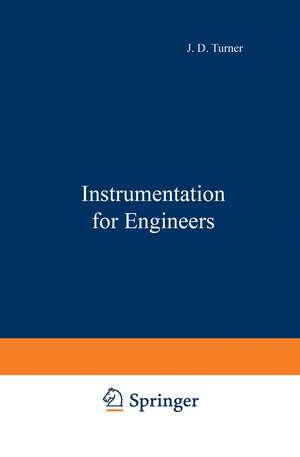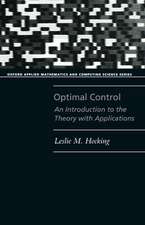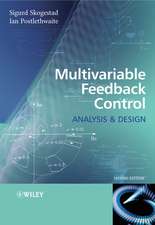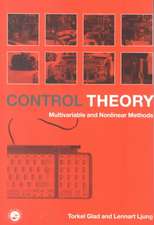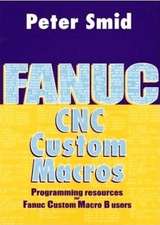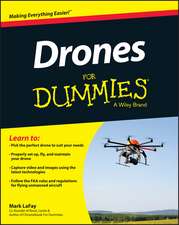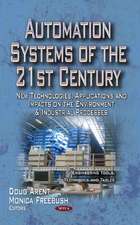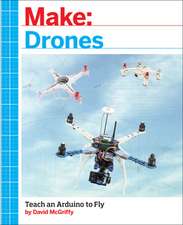Instrumentation for Engineers
Autor K. TURNERen Limba Engleză Paperback – 12 iun 2012
Preț: 637.59 lei
Preț vechi: 750.11 lei
-15% Nou
Puncte Express: 956
Preț estimativ în valută:
122.04€ • 132.61$ • 102.58£
122.04€ • 132.61$ • 102.58£
Carte tipărită la comandă
Livrare economică 21 aprilie-05 mai
Preluare comenzi: 021 569.72.76
Specificații
ISBN-13: 9781468463026
ISBN-10: 1468463020
Pagini: 240
Ilustrații: 222 p.
Dimensiuni: 155 x 235 x 13 mm
Greutate: 0.34 kg
Ediția:Softcover reprint of the original 1st ed. 1988
Editura: Springer
Colecția Springer
Locul publicării:New York, NY, United States
ISBN-10: 1468463020
Pagini: 240
Ilustrații: 222 p.
Dimensiuni: 155 x 235 x 13 mm
Greutate: 0.34 kg
Ediția:Softcover reprint of the original 1st ed. 1988
Editura: Springer
Colecția Springer
Locul publicării:New York, NY, United States
Public țintă
ResearchCuprins
1 The Performance of Instrumentation Systems.- Generalised instrumentation design.- The performance of instrumentation systems.- Error analysis.- 2 Sensors and Transducers.- Displacement sensing.- Velocity sensing.- Acceleration sensing.- Strain measurement.- Flow sensors.- Temperature sensors.- Optical sensors.- Acoustic sensors.- Hall effect sensors.- 3 Signal Conditioning.- Bridge circuits.- Operational amplifier signal conditioning circuits.- Analysing op-amp circuits.- 4 Analogue Filters.- Filter order.- Filter class.- Operational-amplifier filters.- Special-purpose filter devices.- 5 Signal Conversion.- Digital and analogue conversion fundamentals.- Digital-to-analogue converters.- Frequency-to-voltage converters.- Sample-and-hold devices.- Analogue-to-digital converters.- Analogue multiplexers.- Example design.- 6 Digital Circuits and Microprocessor Interfacing.- Digital device families.- Combinational logic, gates and Boolean algebra.- Sequential logic circuits.- Digital systems interfacing.- Number codes.- Microprocessors.- Example interface designs.- Communication standards.- 7 Frequency Domain Analysis.- The modal domain.- Waterfall diagrams.- Vector response diagrams.- Fourier analysis.- Fourier series.- The Fourier Transform.- 8 Practical Spectrum Analysis.- Analogue analysers.- Digital analysers.- The Fast Fourier Transform.- Aliasing and Shannon’s Sampling Theorem.- Windowing.- Choice of window.- Glossary of FFT analyser terminology.- 9 Correlation and Spectral Analysis.- Signal classification.- Autocorrelation.- Interpreting autocorrelation diagrams.- Cross-correlation.- Interpreting cross-correlation functions.- Bibliography and Further Reading.
